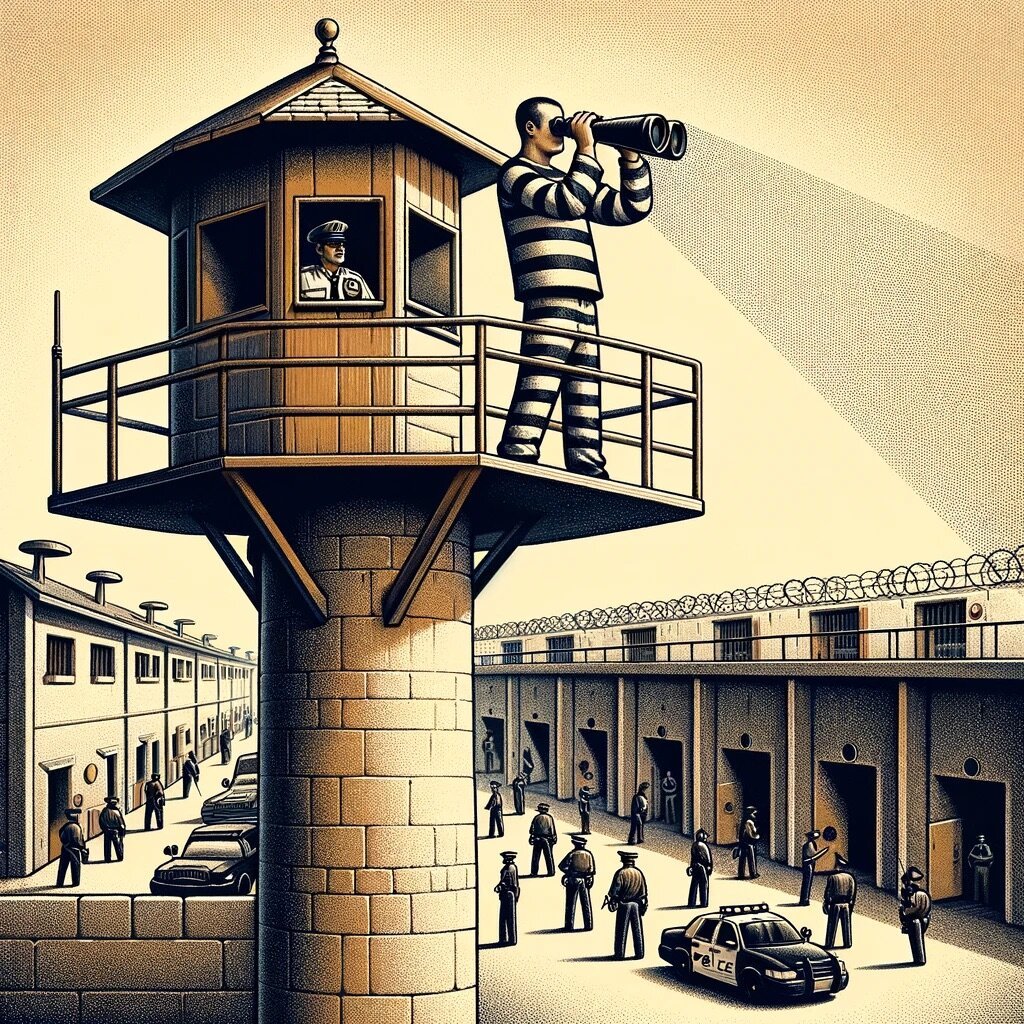The Flex Desk Police/y

Recently, on a sun-drenched tropical island, I found myself sipping a cool drink under the shade of a palm tree, a world away from the hustle and bustle of city life. It was here, amidst the serene beauty of this secluded paradise, that I stumbled upon a story so improbable, it could only be true. The protagonist of this tale was none other than Michael, a man whose name I had heard whispered in the corridors of legal circles and coffee shops alike, often shrouded in a mix of myth and legend.
Michael, now living under the guise of Peter, a simple islander, had invited me to his modest but picturesque beachside home after a chance encounter at the local market. As the sun dipped below the horizon, painting the sky in hues of orange and pink, Peter began to recount the tale of his escape from prison—a feat that had baffled and amused many over the years.
Let me recount his tale which he introduced as I well remember as :
“The Flex Desk Police”, bending the e towards a why with a twinkle in his eye:
In the not-too-distant past, the concept of flexible working had transcended the bounds of traditional office environments and found its way into the most unexpected of places: the penal system. The Flex desk Policy, originally designed to boost morale and productivity among prison staff, allowed employees to choose their working location within the facility, provided the spot was unoccupied at the time. Little did the administration know this policy would soon pave the way for one of the most audacious escapes in the history of the penitentiary.
Enter (or more precisely Exit) Michael, a prisoner with a penchant for the law and a keen observer of routines and regulations. Over the months, Michael had studied the Flex Desk Policy’s guidelines and noticed a loophole so glaring yet so overlooked that it bordered on the absurd.
He realized that the policy, in its generous ambiguity,
did not explicitly exclude prisoners from participating.
The plan was simple yet daring. Michael waited for the day when a significant number of staff would be attending an off-site training session, leaving several desks, including those in the security office, unattended. Early in the morning, under the guise of seeking legal materials for his upcoming appeal, he made his way towards the security office.
As he approached, he was stopped by a puzzled officer, who couldn’t fathom why a prisoner would wander near such a restricted area. With the confidence of a seasoned lawyer, Michael argued that the Flex Desk Policy did not specify “who” could claim an unoccupied desk, only that it could be claimed if it were unoccupied. The bewilderment and hesitancy in the officer’s eyes were all the confirmation Michael needed to know his audacious interpretation
had caught the guard literally off guard.
Leveraging the moment of confusion, Michael nonchalantly walked into the security office, sat down at the main desk, and began to feign work.
The few staff present, already accustomed to seeing unfamiliar faces due to the Flex Desk Policy, paid him no mind.
With access to the security system right at his fingertips, Michael discreetly unlocked the main gates and erased the day’s surveillance footage.
By the time the anomaly was discovered, Michael was long gone, leaving behind a facility in uproar and a policy in dire need of revision. The escape made headlines, sparking debates on the flexibility of work environments and the importance of clear policy language. Meanwhile, Michael, now a legend in his own right, had vanished into the ether, using the flex desk policy of the local airline.